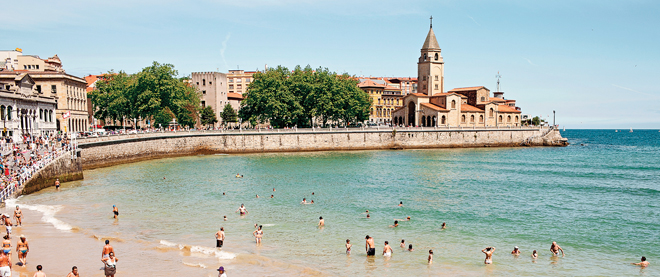European benefits fly in the face of austerity
Those who get sick while on vacation may now be granted additional time off in lieu
Luke MacGregor/Reuters
Share

Can anyone help Europe if it won’t help itself? The question seemed pertinent last week after the European Union Court of Justice ruled in favour of Spanish department store workers demanding the right to reclaim any holiday time lost to illness. The decision by Europe’s highest court is binding on employers throughout the EU, including Britain, and came as Spain put the finishing touches on a request for an EU bailout. No surprise, then, that the decision was met with hisses from economists and politicians. “Most employees accept that if they fall ill while on holiday, it is unfortunate,” said Norman Lamb, the U.K.’s employment relations minister. “But they do not expect extra vacation.”
Maybe not on Lamb’s side of the Channel. On the continent, things are different. The new rule joins a cornucopia of workplace benefits that remain even as troubled eurozone economies groan under crushing debt and staggering unemployment. Spanish workers get an extra two weeks off for honeymoons, and 20 days of severance even if they’re fired with cause. In France, companies must give extra paid leave to staff who work 39 hours per week instead of the statutory 35, even if the workers are paid for the overtime. In Italy, firms that lay people off during an economic downturn can face years of costly legal proceedings. By way of remedy, Rome is proposing a law requiring employers to pay laid-off workers a whopping 27 months in wages.
Gold-plated entitlements like these persist despite complaints from economists that they discourage companies from hiring at a time when one in two Spaniards and one in three Italians under the age of 25 are unemployed. They’re also adding to the burden on public-sector institutions, which had been the last redoubt of employment growth since the financial crisis took hold in 2008. Spain’s government-paid workforce actually expanded by 11 per cent in the three years that followed the meltdown. Last week, Madrid warned that mass layoffs of civil servants may be necessary to contain a deficit nearing $90 billion.
Are Europeans oblivious to the crisis before them? On one level, the recent decision reflects long-held views that benefits, more than just nice, are necessary, says Kurt Huebner, a professor with the University of British Columbia’s Institute for European Studies. To them, “vacation is like bringing in a car for maintenance,” he says. “It’s necessary to get basic repairs in order to function properly. Thus it is logical that if you become sick during this period, you should have the opportunity to recover.” And though the verdict “flies in the face of austerity,” Huebner adds, many Europeans believe workers have done their part in the past decade, as wages have decreased as a share of GDP while profits have risen.
That’s not to say an endless flow of perks is good for Europe’s social fabric. Faced with sky-high benefit costs, employers are increasingly reluctant to hire on anything more than temporary contracts—terms they can let expire with little hassle and no severance for the worker. The result has been a two-tiered workplace in countries like Portugal, where nearly a quarter of the workforce is temporarily employed. In Spain the proportion is closer to 40 per cent, while veteran employees enjoy something akin to jobs for life.
Those disparities are never so apparent as in the summer months, when the privileged class of permanently employed depart Europe’s cities for country villas and seaside playgrounds, leaving behind the frustrated underclass of young people who can’t find work. In Spain, they’re called mileuristas because they survive on about 1,000 euros per month (roughly $1,200), despite having university degrees and good recommendations from previous employers. Many are sinking into record levels of personal debt, with no prospective income to pay it off. In Spain, household debt now stands at about 90 per cent of the country’s annual economic output.
How long the mileuristas will tolerate the status quo is anyone’s guess. But if southern Europe’s summer of discontent gets any worse, they may well hit the streets, prompting the working elite to think twice about returning from their vacation sanctuaries. EU labour law does not yet recognize claims for time lost to public demonstrations. But now, thanks to the wisdom of the continental court, they could always call in sick.